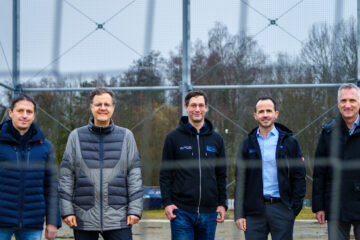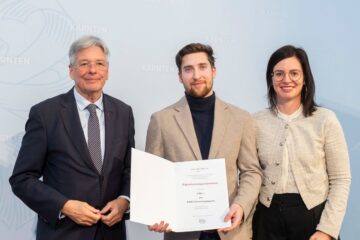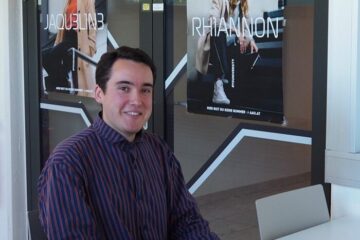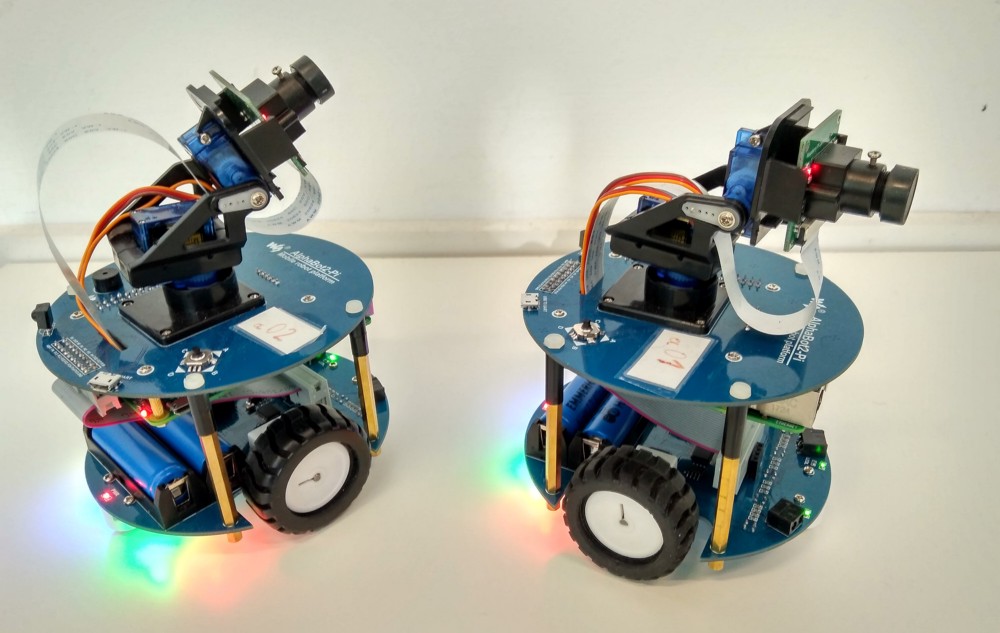
Wherever several clocks tick simultaneously, it is tricky to get them all to display precisely the same time. This can be a challenge for drone swarms that are airborne together. To tackle this problem, young scientist Agata Gniewek is developing new technologies.
The difficulty is in the detail: When drone swarms take to the air together, to complete missions such as the exploration of a building after an earthquake, it is essential that they work well together. Agata Gniewek, doctoral student in the Karl Popper Kolleg focusing on “Networked Autonomous Aerial Vehicles” at the Alpen-Adria-Universität Klagenfurt, aims to improve the operation of drone swarms by focusing on the synchronisation of the drones’ onboard clocks. As she explains: “Even if we synchronise the clocks in the drones just before they start, as time passes, differences emerge and gradually increase. These subsequently lead to errors in the coordination of the drones.”
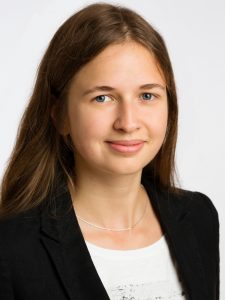
For her field of work, Agata Gniewek uses the synchronisation system of fireflies. These flash together, achieving greater overall visibility, and they use tricks that allow them to continuously adjust to each other. This mechanism has been translated into a mathematical model, so it can be harnessed for technology development, among other uses. The task now is to apply this firefly synchronisation to the problem Gniewek and her colleagues are dealing with. “Our aim is to achieve real-time synchronisation that can be realised without the use of GPS or the Internet. Some protocols do already exist, but unfortunately they do not function in a distributed manner: If it is necessary to use a central point that issues the correct time at any given moment, then this node also represents a potential source of error. That is why we are turning to methods that reproduce the behaviour one can find in Nature.”
In a next step, Gniewek hopes to adapt the firefly synchronisation for ground-based robots, as these feature fewer limitations than the tiny aircraft. Agata Gniewek is in her element with the research work in the Karl Popper Kolleg, not least because she previously studied “Control Engineering and Robotics” at Wrocław University of Science and Technology. The young Polish scientist has nurtured the dream to become an engineer since, at the age of four, she visited the technology firm where her father worked. Following a short period spent working in industry, her plans took on a more specific shape: “Working purely as an engineer is not something I wanted to do for very long. I preferred to return to science, and I wanted to pursue a doctorate.” Her position in Klagenfurt turned out to offer the perfect location at the perfect time, as she was hoping to move close to the Alps so she could indulge in one of her great passions: mountain sports. Everything has come together very nicely: Working in an international team on a topic that, in her view, has a promising future and is highly motivating, as well as the environment she wished for. Agata Gniewek has seen many dreams come true; her parents, she tells us with a cheeky smile, have not been quite as lucky: They had both dearly hoped that their two daughters would pursue careers as a doctor and a lawyer. Indeed, Gniewek’s sister is working in the field of law, while Agata ended up in engineering — in Poland, as elsewhere, this was not a typical choice for a young woman to make. “But public opinion is gradually shifting, and I am hopeful that many more will join me on this path.”
A few words with … Agata Gniewek
What would you be doing now, if you had not become a scientist?
I would probably still be doing my old job, working on the development of embedded devices.
Do your parents understand what it is you are working on?
I am sure that they are able to understand it, but we have not had enough time to talk about it, at least, not since I have understood it. 🙂
What is the first thing you do when you arrive at the office in the morning?
I always start by making a cup of tea and checking emails.
Do you have proper holidays? Without thinking about your work?
I only started four months ago and I have not had any holidays since then.
What makes you furious?
Wasting time.
What calms you down?
Listening to music with a cup of tea and something sweet.
Why do so many people fear the technical sciences?
Because they do not believe in their capabilities and with the wrong attitude things may appear to be much more complicated than they really are.
What are you afraid of?
Helplessness.
What are you looking forward to?
Seeing the things that I am working on running on the real robots.

